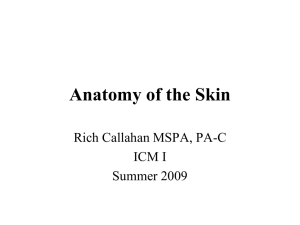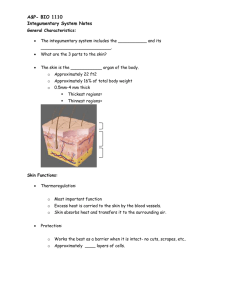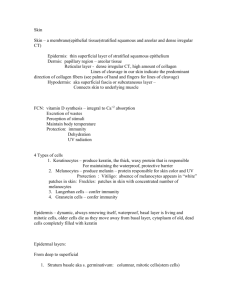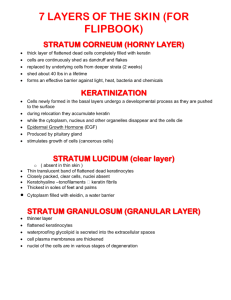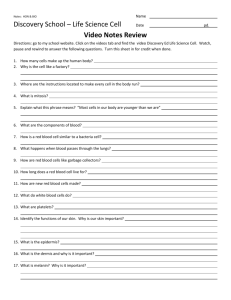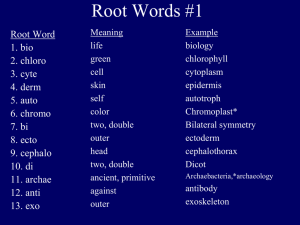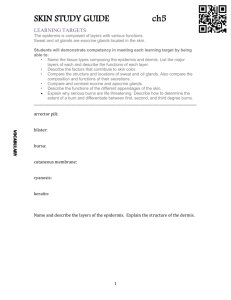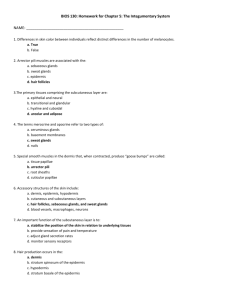SOLUTION GRAPHS & VISUALS (more)
advertisement
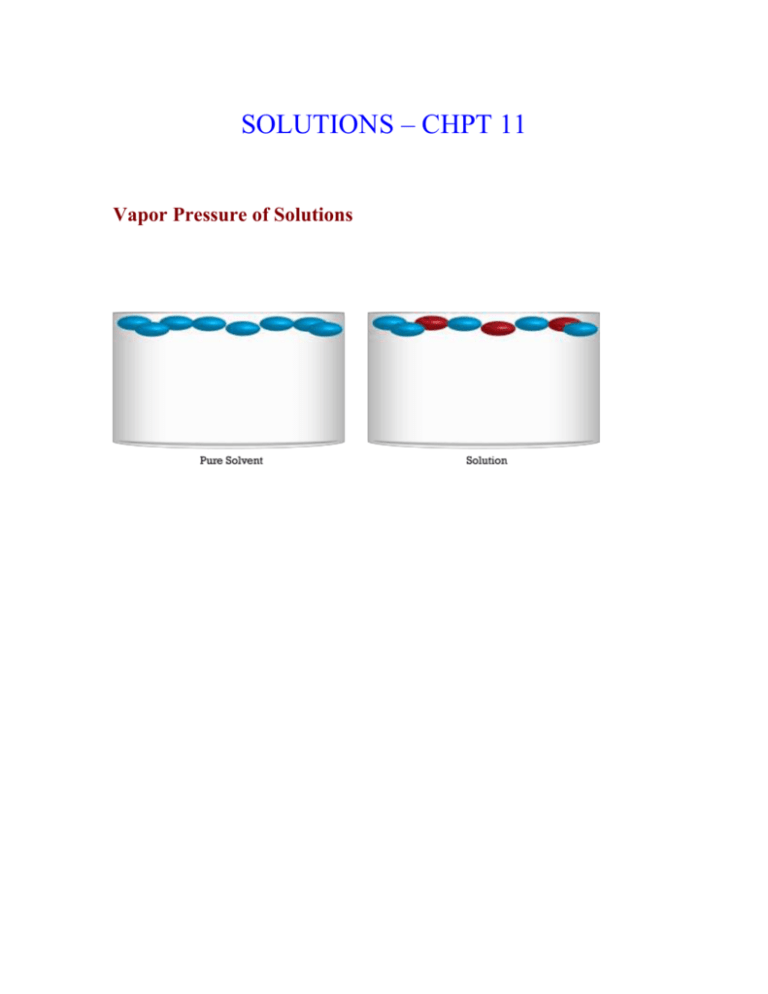
SOLUTIONS – CHPT 11 Vapor Pressure of Solutions Raoult’s Law OSMOSIS Osmotic pressure is the pressure which needs to be applied to a solution to prevent the inward flow of water across a semipermeable membrane. It is also defined as the minimum pressure needed to nullify osmosis. Skin absorbs water and swells While immersed, the keratin in the superficial layer of skin absorbs a small amount of water, causing it to swell a bit. Although this occurs over the entire body surface, it is only noticeable on the fingers (and toes), because in those particular areas, the skin is "tied down" to underlying structures by webs of connective tissue. Therefore, only the parts of the skin between the webs are free to puff up, giving the familiar "prune" appearance. Ed Uthman, MD Pathologist The epidermis, or outer layer of the skin, is made up of cells called keratinocytes, which form a very strong intracellular skeleton made up of a protein called keratin. These cells divide rapidly at the bottom of epidermis, pushing the higher cells upward. After migrating about halfway from the bottom of this layer to the top, the cells undergo a programmed death. The nucleus involutes, leaving alternating layers of the cell membrane, made of lipids, and the inside, made largely of water-loving keratin. The outer layer of the epidermis, called the stratum corneum, is thus composed of these alternating bands. When hands are soaked in water, the keratin absorbs it and swells. The inside of the fingers, however, does not swell. As a result, there is relatively too much stratum corneum and it wrinkles, just like a gathered skirt. This bunching up occurs on fingers and toes because the epidermis is much thicker on the hands and feet than elsewhere on the body. (The hair and nails, which contain different types of keratin, also absorb some water. This is why the nails get softer after bathing or doing the dishes.) Soaking in the tub does hydrate the skin, but only briefly. All the added water quickly evaporates. http://www.scientificamerican.com/article.cfm?id=why-do-fingers-wrinkle-in
